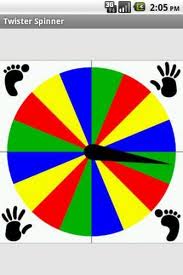Since there is so little to gossip about in the halls of LHS while we are on duty before school, between classes, and at lunch, I thought we might like to create a kind of unofficial classics book club. Yes, I know we have plenty to do (lesson plans, grading, extra-curricular activities, etc.), but it would be nice if we could have conversations about something other than the same 'ole, same 'ole.
This isn't an English teacher thing, it is a reader thing. If you like to read, then every once in a while you might like to read a literary classic. You only need to be involved at the level you want to be, so feel no pressure. You don't have to be all in. Participate as you have time. If you are interested, read on. If not, no prob., but if you know someone who might be interested, then would you pass this message along?
The Details:
I discovered a blog called
The Classics Club recently, and it inspired me to make a list of 50 classics I would like to read in the next 5 years. Obviously, you don't have to make a list with 50 items, but maybe there are a few classic novels you have always wanted to read or you have heard about them at some point in your life and though you might want to read them. This is the time to jot down your list, whatever is manageable, and begin. If you are interested in my list, see it here -
Keller's Classic List.
Tell a friend/ neighbor here at school what you are reading and maybe you can read the same work. I told my lunch group what I was doing, and that I was starting with
Little Dorrit by Charles Dickens. Ryker decided to read it. Then I told Vicki, and she is reading along from TN. Initially, it is interesting to just share your list and find out what people have read and what they want to read.
Making Your List:
To help make your list, I have a couple of links you can check out that have lists of classic novels, plays, poetry collections, etc. Also, literary classics can be from any cannon (western, eastern) or any time period (ancient to modern). Don't feel hemmed in by too many rules. You may even want to read Young Adult classics.
- This site combines many top 100 lists, so it is pretty comprehensive. #1: A List of Books
- I also used this link from The Classics Club site because it has some eastern classics. The Big Book List
- This link has the suggested works that Advanced Placement students should read for the AP Literature and Writing exam. This site is interesting because it divides classics by American, British, and World lit.
Goodreads:
You may be in a situation where you aren't sure which classic would suite your taste. If you go to the
Goodreads site, you get an opportunity to identify and rate books you have read, and then the site makes suggestions for you to read based on your tastes. The process is much like using Netflix to narrow your movie choices.Also, Goodreads is a perfect place to keep track of your list.
Documenting:
Whether or not you want to document your journey is up to you. You may prefer to read a work, talk about it, and move on to the next piece. I decided to write an informal review of each item I read from my list and post it on my blog. Blogging is a different way of sharing your journey. So, no pressure for this part of the process. If you are interested in blogging what you read, I've linked two free blogging sites to get you going. I'm using one of the free options from blogger. If you decide to blog, please send me a link to your site. I would love to follow you. A plus for blogging is that it makes your list accessible to everyone else in school. That way we could look over lists and identify works we have in common.
www.blogger.com
wordpress.org
Sources:
No need to pay for all of these classics. Our LHS library has most of them. If you have an e-reader, then many classics are free. Also, if you think you don't have time to set aside for reading, consider using your daily commute to participate. I listen to audiobooks on my way to and from work.
The End:
So, that's it. Thank you for your attention and consideration. I hope you decide to read a classic and find someone in the school to read the same work. Like I said before, I'm reading
Little Dorrit by Dickens, and I am listening to
Cold Sassy Tree by Olive Ann Burns. I know I will read
Pride and Prejudice and
A Streetcar Named Desire here soon, but I am open to suggestions from my friends and co-workers for upcoming choices. Happy Reading.
Jennie






















